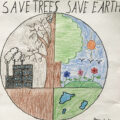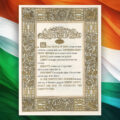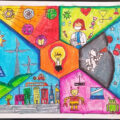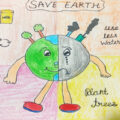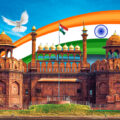
Being a writer isn’t easy. You have to ignore the depressing surroundings around you and yet write happily-ever-after stories. Which is precisely why I think they demand a certain respect. And those authors who gamble their “best-selling” reputation to include one or more paragraphs of sadness in their literary works command even more respect (in fact, I believe a chapter of a book depends on the mood of the author). Though authors do so all in vain, as hardly anyone reads books anyway.
Yet, some of us kids ignore the latest trendy videos on YouTube and consider children’s literature more worthy and deserving of our attention. I am neither a frequent writer nor do I maintain a journal (both due to my extreme laziness). Yet, I have managed to produce a few literary pieces I’m rather proud of. But this isn’t about my (scarce) literary works. It’s about others’, as the title rightly indicates so.
Many of us (except perhaps you, dear reader, or you wouldn’t bother reading nonsense written by a random 12-year-old) fail to recognise and explore the vast expanse of knowledge hidden in the (not so vast) pages of a book (the knowledge, which I like to believe only truly deserving readers can decipher). Those who do decipher that knowledge, however, probably realise it’s quite an addictive habit.
I would prefer a rather scruffy-looking, ancient, dusty old book to a large, shiny new television screen (no offence to those couch potatoes, but you get the message). I’m not sure if the word ‘readaholic’ exists in the Oxford Dictionary, but it surely does in mine. And I find it appropriate to quote Roald Dahl’s beautiful, well-said (or rather well-written) lines here:
“Oh, books, what books they used to know,
Those children living long ago!
So please, oh please, we beg, we pray,
Go throw your TV set away,
And in its place you can install
A lovely bookshelf on the wall.”
My suggestion is needless here, the poem speaks for itself. And unless you’ve got dung for brains, you’ll be well inculcated by its message.










